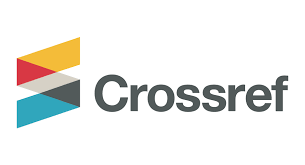Lembaga Peradilan Khusus Pemilu Di Indonesia dalam Perspektif Hukum Tata Negara
 Abstrak views: 288
,
Abstrak views: 288
,
 PDF (English) downloads: 275
PDF (English) downloads: 275
Abstrak
Negara Indonesia menganut sistem demokrasi dengan mengedepankan suara rakyat, tak pernah lepas dari suksesi kepemimpinan melalui pemilu. Pesta demokrasi di Indonesia dinaungi oleh sebuah lembaga yang bernama BAWASLU (Badan Pengawasan Pemilu). Salah satu kewenangan BAWASLU adalah mengawasi dan menyelesaikan pelanggaran dan sengketa Pemilu. Namun dalam hal ini dapat dimengerti ada dua kewenangan yang dimiliki oleh BAWASLU yakni mengawasi dan juga menyelesaikan sengketa pemilu.
Tulisan ini akan membahas tentang dua kewenangan yang dimiliki bawaslu tersebut apakah sudah memenuhi asas-asas penyelenggara pemilu, salah satunya jika dikaitkan dengan asas profesionalitas dan akuntabilitas. Selanjutnya ditinjau dari perspektif ius constituendum ada dua istilah yang harus dipahami lebih lanjut yakni electoral board dan electoral court. KPU dan Bawaslu sendiri pada dasarnya termasuk kedalam electoral board, sementara yang harus dipertegas disini adalah lembaga yang dikhususkan untuk menyelesaikan pelanggaran dan sengketa pemilu secara akuntabel dan profesional. Electoral Court adalah lembaga baru yang dibuat berjenjang mengikuti jenjang struktur KPU dan Bawaslu. Lembaga Peradilan Khusus Pemilu bertujuan untuk menangani pelanggaran dan sengketa kepemiluan diluar struktur Kekuasaan Kehakiman konvensional.
##plugins.generic.usageStats.downloads##
Referensi
Ulla Fionna dan Dirk Tomsa. Parties and Factions in Indonesia: The Effects of Historical Legacies and Institutional Engineering. ISEAS Working Paper, Number 01 2017.
andra Hamid, Indonesian’s Presidential Election: History in the Making, Asia Foundation https://asiafoundation.org/2009/07/07/indonesias-presidential-election-history-in-the-making/, diakes pada tanggal 10 September 2018.
Undang-Undang Nomor 12 Tahun 2003 tentang Pemilihan Umum anggota DPR, DPD dan DPRD, Pasal 120.
Undang-Undang Nomor 22 Tahun 2007 tentang Penyelenggaraan Pemilihan Umum
Undang-Undang Nomor 10 Tahun 2008 tentang Pemilihan Umum Anggota Dewan Perwakilan Rakyat, Dewan Perwakilan Daerah, dan Dewan Perwakilan Rakyat Daerah, Pasal 123.
Undang-Undang Nomor 7 Tahun 2017 tentang Pemilihan Umum, Pasall 94 Angka (2) huruf (d), Angka (3) huruf (d) dan Pasal 95 butir (d).
Herbert Feith, President Soekarno, the Army and the Communists: The Triangle Changes Shape. Asian Survey, Volume 4 (1964).
4 Paul J Carnegie, Democratization and Decentralization in Post-Suharto Indonesia:Understanding Transition Dynamics. Pacific Affairs, Volume 81 (4) 2008.
Ramlan Surbakti dan Hari Fitrianto. (2015). Transformasi Bawaslu dan Partisipasi Masyarakat dalam Pengawasan Pemilu. Jakarta: Kemitraan Partnership.
Undang-Undang Nomor 2 Tahun 1980 tentang Perubahan Atas Undang-Undang Nomor 15 Tahun 1969 tentang Pemilihan Umum Anggota-Anggota Badan Permusyawaratan/Perwakilan Rakyat
Undang-Undang Nomor 3 Tahun 1999 tentang Pemilihan Umum.
Undang-Undang Nomor 12 Tahun 2004 tentang Pemilu Legislatif dan Undang-Undang Nomor 23 Tahun 2004 tentang Pemilu Presiden
Undang-Undang Nomor 22 Tahun 2007 tentang Penyelenggaraan Pemilihan Umum.
Undang-Undang Nomor 7 Tahun 2017 tentang Pemilihan Umum.
The European Commission for Democracy through Law, Laws and Electoral Bodies: The role of the judiciary in shaping democractic institutions. (2014). Lisbon: Lisbon Forum.
Ramlan Surbakti, Penegakan Hukum dan Pilkada, Kompas, Selasa 8 Maret 2016.
Undang-Undang Nomor 7 Tahun 2017 tentang Pemilihan Umum, Pasal 94 Ayat (2) huruf (d), Ayat (3) huruf (e), Pasal 97 Ayat (2) huruf (d) dan (e), Pasal 98 Ayat (3) huruf (d) dan (e) dan Pasal 102 Ayat (2) huruf (d), (e) dan Ayat (3) huruf (d) dan (e).
Denis Petit. (2000). Resolving Election Disputes in the OSCE Area: Towards a Standard Election Dispute Monotoring System, Geneva: Office for Democractic Institutions and Human Rights.
Jesús, Orozco-Henríquez. (2010). Electoral Justice: The International IDEA Handbook. Oslo: International Institute for Democracy and Electoral Assistance.
Avery Davis-Roberts. International Obligations for Electoral Dispute Resolution, Discussion Paper at Expert Meeting, Atlanta GA, February 24-25 2009.
Kurt Richard Luther, Electoral strategies and performance of Austrian right-wing populism 1986-2006 Working Paper Keele European Parties of Research Unit, Volume 24 Keele University, February 2007
Orozco-Henríquez, Electoral
Publishing your paper with As-Shahifah : Journal of Constitutional Law and Governance means that the author or authors retain the copyright in the paper. As-Shahifah granted an exclusive non commercial reuse license by the author(s), but the author(s) are able to put the paper onto a website, distribute it to colleagues, give it to students, use it in your thesis etc, so long as the use is not directed at commercial advantage or toward private monetary gain. The author(s) can reuse the figures and tables and other information contained in their paper published by As-Shahifah in future papers or work without having to ask anyone for permission, provided that the figures, tables or other information that is included in the new paper or work properly references the published paper as the source of the figures, tables or other information, and the new paper or work is not direct at private monetary gain or commercial advantage.
As-Shahifah journal provides immediate open access to its content on the principle that making research freely available to the public supports a greater global exchange of knowledge. This journal is licensed under a Creative Commons Attribution-ShareAlike 4.0.This license lets others remix, tweak, and build upon your work non-commercially, and although their new works must also acknowledge & be non-commercial, they don’t have to license their derivative works on the same terms.
As-Shahifah journal Open Access articles are distributed under this Creative Commons Attribution-ShareAlike 4.0 International License (CC BY-SA). Articles can be read and shared for noncommercial purposes under the following conditions:
- BY: Attribution must be given to the original source (Attribution)
- SA: If you remix, transform, or build upon the material, you must distribute your contributions under the same license as the original.









